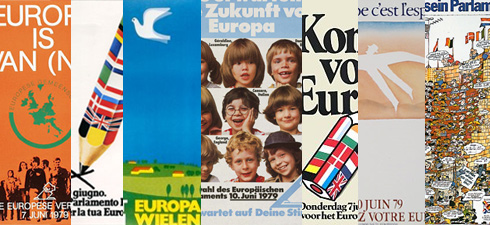How does Europe stand in the political spectrum? From a strictly mathematical point of view, it appears to lean to the right: of the 27 states that make up the EU, 14 are ruled by centre-right governments, eight by left-wing governments, and five, including Romania, by coalitions spanning both sides of the political divide. The right, in the form of the European People’s Party, also dominates the current European parliament – whose mandate will shortly come to a close – with 288 of a total of 785 MEPs, ranged against 217 socialist MEPs. But this type of calculation may miss the point. In reality, the ideological rift in Europe is much narrower than it is elsewhere, for example in America. At the same time, the current global economic crisis has prompted a massive shift in political rhetoric, and European politicians from all sides are queuing up to announce their credentials as champions of the welfare state and critics of heartless liberalism. “Solidarity” and “redistribution” have become the new buzzwords, and any references to “competition” and “market economics” are studiously avoided.
There are more significant conceptual differences on issues such as relations with the United States, the EU’s role in the world, and the progress of political integration in Europe, but the People’s Party is hampered by the fact that it is a relatively eclectic affair, while the Party of European Socialists is more united and ideologically closer to the Liberal Democrats and the Greens; two political groupings that benefit from support from intellectuals and the media, which also lean to the left in the West. So it is likely that a kind of soft left will continue to dominate the European Parliament’s decisions and policy positions for some time to come.
But, you might well ask, does anything really important happen in the European Parliament? Apart from its defining role as an expression of democracy in the community, the Parliament does play an essential role in two practical ways: 1) it elects the commissioners and the president of the European Commission; and 2) it votes on the budget for the European Union. Moreover, now that the hitch in the Czech Republic has been sorted out, if the Irish vote for the Lisbon Treaty in the next referendum, the European Parliament will have extensive new powers. But all this may be somewhat optimistic, because it the current economic crisis continues, the political goodwill that allows leaders to place the EU project before national interests will melt like snow in the sun. Naturally, this will have a negative impact on institutions like the European Parliament.
This year, elections for the European Parliament will held simultaneously in all the member states of the EU for the seventh time since 1979. As always, the turnout will likely be disappointing, and the political stakes will not mean much outside of Brussels. But it will be an important step, especially for Romania and Bulgaria, the two latest countries to join the union. One issue that will be important for the long-standing members of the EU will be the quality of the teams they send to Brussels and Strasbourg. Traditionally, with the exception of a handful of big-hitters who are usually at the end of their careers, Western European countries elect political also-rans to represent them in Europe. But this will not be the case in Eastern Europe, where the job description for MEPs is radically different. There are two reasons for this: 1) relations between national political parties and groups like the EPP, PES and ALDE are more important than they are in western countries; and 2) the ability of MEPs to promote national interests counts for much more.
How these criteria affected the reshuffle of election lists in individual countries is anybody’s guess. As for what the European electorate will think, we will have to wait and see on 7 June.
Was this article useful? If so we are delighted!
It is freely available because we believe that the right to free and independent information is essential for democracy. But this right is not guaranteed forever, and independence comes at a cost. We need your support in order to continue publishing independent, multilingual news for all Europeans.
Discover our subscription offers and their exclusive benefits and become a member of our community now!












